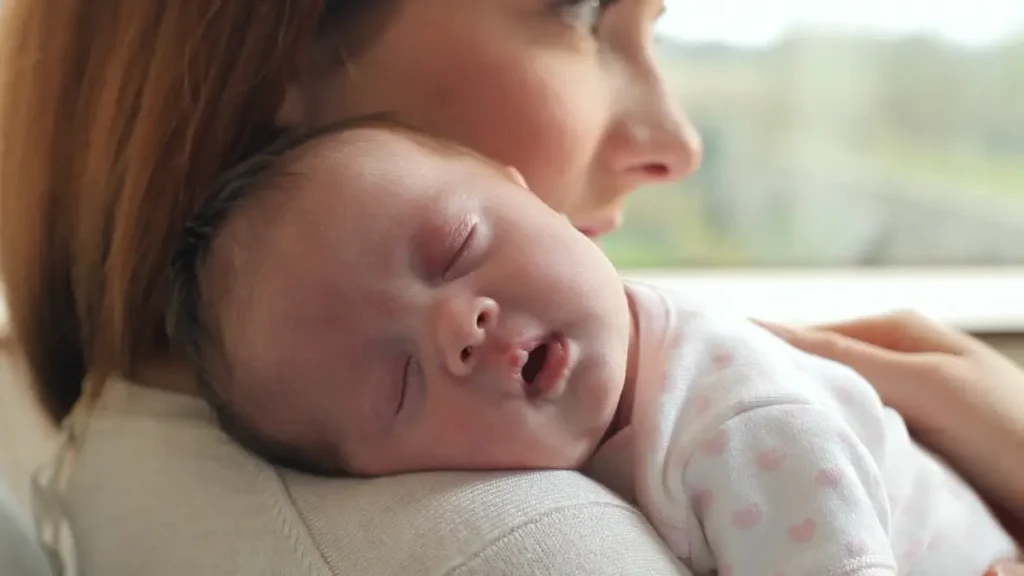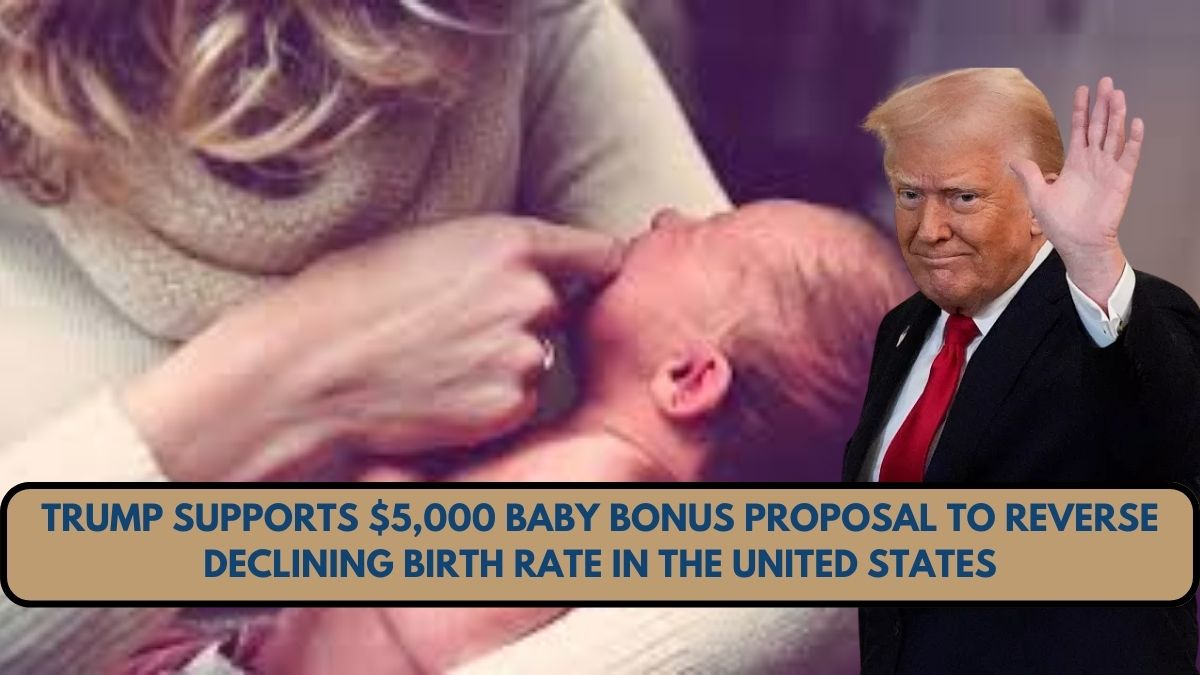In an attempt to combat the nation’s declining birth rate, former President Donald Trump has voiced his support for a $5,000 “baby bonus” for new mothers. The proposal, still under review by the Trump-aligned policy team, seeks to provide a one-time financial incentive to women who give birth in the United States.
“Sounds like a good idea to me,” Trump said when asked about the measure, signaling informal support for what could become a hallmark policy of a potential 2024 campaign continuation or conservative policy push.
The Birth Rate Crisis
The proposal comes as the United States grapples with a historic drop in birth rates. In 2023, the country recorded its lowest number of births since 1979. While a slight increase was observed in early 2024, experts caution against viewing it as a reversal of long-term trends.
According to the CDC’s National Center for Health Statistics, the fertility rate in the U.S. remains below the replacement level of 2.1 births per woman—raising concerns over future economic sustainability, labor force size, and elder care infrastructure. (Source: CDC.gov – Birth Data)

What’s in the Proposal?
The $5,000 baby bonus is part of a broader set of pronatalist policies under discussion. These include:
- Expanding the Child Tax Credit to $5,000 per child
- A proposed “National Medal of Motherhood” for women who have six or more children
- Reserved slots in Fulbright scholarships for married individuals or parents
- Enhanced government-funded menstrual education programs
The idea stems from advocacy groups and intellectuals like Malcolm and Simone Collins, who have reportedly submitted draft executive orders supporting these initiatives.
Mixed Reactions from the Public and Media
While Trump and some conservatives have welcomed the proposal, reactions have been far from unanimous.
On a recent episode of The View, cohost Alyssa Farah Griffin said she was open to the idea of the bonus. Her comments were met with gasps from the audience and sharp criticism from fellow panelists, who questioned whether a one-time payment would do anything to help the real struggles of parenthood in the U.S.
Critics, including women’s advocacy groups and economic analysts, argue that while the proposal may have symbolic value, it fails to address the root causes of low birth rates—such as rising childcare costs, lack of affordable housing, and limited access to paid parental leave.
“Throwing cash at the problem without changing the infrastructure that supports families is like putting a Band-Aid on a broken bone,” said one policy expert writing for Self Magazine.
Policy Implications and the Road Ahead
The proposed baby bonus is not yet formal legislation. It would require approval from Congress and further refinement from executive agencies such as the U.S. Department of Health and Human Services and Internal Revenue Service to determine eligibility criteria, disbursement mechanisms, and timelines.
Experts also warn that without addressing core structural issues—like paid family leave (currently offered by only 23% of U.S. employers) and access to affordable childcare—such incentives may have limited impact.

Conclusion
The $5,000 baby bonus is emblematic of a broader conversation about how the U.S. should approach its population decline. While it may provide short-term relief or motivation for some families, many argue that deeper, systemic changes are required to make parenthood truly sustainable for the next generation.
As the proposal continues to circulate among Trump’s policy advisors and conservative think tanks, Americans await further clarification on whether it will become a formal part of upcoming Republican platforms or remain a headline-grabbing talking point.
This article has been carefully fact-checked by our editorial team to ensure accuracy and eliminate any misleading information. We are committed to maintaining the highest standards of integrity in our content.

Deepak Grover is a dedicated content writer at OTE News, specializing in government affairs, public policy, and current events. With a keen eye for detail and a passion for factual reporting, he ensures readers receive accurate and insightful news. Deepak holds a degree in Political Science and has experience in research-driven journalism.
When not writing, he enjoys reading historical books, exploring hiking trails, and staying updated with global political trends. His commitment to ethical journalism makes him a trusted voice at OTE News.




